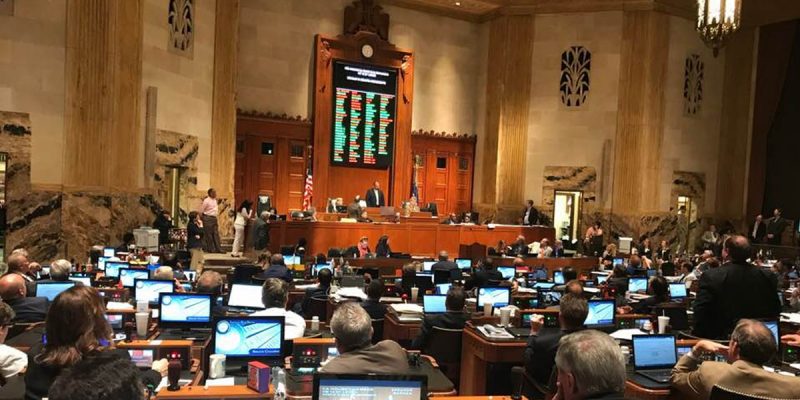One historic session of the Louisiana Legislature down, one to go – and historic for more than one reason.
After enduring a regular session interrupted for about a month-and-a-half because of gubernatorial restrictions due to the Wuhan coronavirus pandemic, the Legislature launched itself into a special session potentially a month long. It’s only the second time it has done so, and the first time it hasn’t restricted itself to a narrow agenda.
Democrat Gov. John Bel Edwards did take issue with the generality of the call, implying that it tried to do too much, although his claim rings a bit hollow. Of the 41 items, 14 deal with budgeting matters, some of which the chambers resolved in the regular session but left most hanging because of the shortened nature of the session. Another nine address the impact of Edwards’ actions because of the pandemic. A dozen concern tax matters, which in this even-numbered year the body couldn’t address during the regular session. Outside of these areas that timing has prevented to date their resolutions, just a handful of issues remain, and one named – tort reform – the Legislature successfully completed in the regular session.
Because his own actions and the calendar created an imperative for the overtime gig, Edwards couldn’t complain much and vent his real complaint: this session will cause significant erosion of his power. Specifically, the longer time period justified by the agenda’s length allows the Republican legislative leadership to strip Edwards of his veto powers and threats to use it.
For example, by having a month-long extra meeting right after the regular session, it forced Edwards into accepting tort reform he vehemently opposed. Normally, if a bill doesn’t pass both houses at least ten days prior to session’s end, the governor has 20 days to veto it after the end. To override, the Legislature would have to call itself back into veto session, which it never has done in large part discouraged by having to spend additional time and money reconvening.
Given the vote distribution on it in the House, he might gamble on a veto.
However, by putting itself into special session already, any veto would return to it while convened, making an override vote simple to bring. Knowing this, Edwards knuckled under on this matter, extracting mainly face-saving changes to the bill in conference, and sustaining a major defeat.
This also kicks the props out from another veto strategy Edwards otherwise could use to beat back tort reform and other bills he didn’t like. A governor’s line item veto power, particularly in reference to the capital outlay bill, he can use to cajole votes consistent with his agenda by assenting to or striking down projects in a legislator’s district.
Advertisement
Again, however, if the Legislature remains in session after the vetoes come out, it can override these. With this ability credibly out there – Republicans hold more than the two-thirds advantage needed in the Senate and fall just short of that in the House – Edwards loses a lot of leverage with such threats.
This means the Republican leadership can move both the operating budget and capital outlay budgets (along with all other ones of lesser importance, none of which it completed during the regular session) in the first two weeks of the session and have plenty of time to neuter any Edwards vetoes. He knows it and members know it, so whatever the Legislature did in regular session and early enough in the special session potentially it can make immune to cancellation.
That includes one possibly contentious special session item – changes to the Industrial Tax Exemption Program credit that allows firms making certain capital expenditures relief from parish property taxes. Republicans have complained that the governor holds too much power in determining program leeway, and as a result may seek a constitutional amendment to give the Legislature power in this area to create uniformity, which requires two-thirds majorities but escapes gubernatorial review. Such an effort went nowhere in the regular session when some Republicans in committee voted against it.
So, history was made with the interrupted regular session and called special session by the Legislature. But the historicity likely will extend further as the two together will clip the wings of the governor as never done before.
Advertisement
Advertisement

